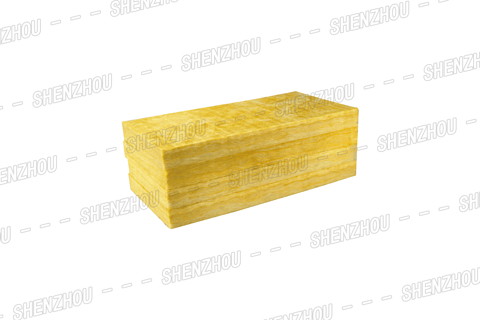
Is ROCKWOOL better than fiberglass?
6/11/20245 min read

The comparison between ROCKWOOL and fiberglass has always been a hot topic in the field of construction and insulation materials. Both have their own advantages, but which one is better largely depends on the usage scenario and specific requirements. This article will conduct in-depth analysis and comparison of these two materials from multiple dimensions, so that readers can have a more comprehensive understanding of their characteristics and applicability.
Categories
Popular
Applications of Glass Wool Board:
Interior Wall Compartments:
Enhances the functionality and aesthetics of interior spaces.
Ceiling Systems:
Provides effective insulation for ceilings, contributing to energy efficiency.
Insulation of Iron Sheet Air Ducts or Bellows:
Ideal for insulating ductwork, ensuring thermal efficiency.
Sound Absorption and Noise Reduction:
Reduces noise levels in machine rooms, creating a quieter working environment.
Exterior Wall Insulation:
Offers insulation for residential building exteriors, contributing to energy savings.
Glass Wool Insulation





Firstly, let's take a look at ROCKWOOL. As an inorganic fiber material made from natural rocks, ROCKWOOL has excellent fire resistance, is non flammable and non-toxic, making it excellent in situations with high fire resistance requirements. In addition, its low thermal conductivity means that its insulation performance is superior, which can effectively maintain the internal temperature stability of the building. In terms of sound absorption and noise reduction, ROCKWOOL also performs well, effectively reducing the impact of noise on the living or working environment. It is worth mentioning that ROCKWOOL also has excellent durability and stability, which can maintain its performance for a long time.
However, ROCKWOOL also has some shortcomings. For example, when construction workers accidentally stick it to the skin, it may cause slight itching or discomfort. In addition, although ROCKWOOL itself is harmless, if used in combination with flammable adhesives, it may affect its overall flame retardant performance. Therefore, when selecting and using ROCKWOOL, special attention should be paid to its construction method and adhesive selection.
Next, let's take a look at fiberglass. Glass fiber is an excellent inorganic non-metallic material with good insulation, strong heat resistance, good corrosion resistance, and high mechanical strength. This makes fiberglass widely used in fields such as electrical, chemical, and construction. Especially in the field of electrical insulation, glass fiber has won the favor of the market for its excellent insulation performance.
However, fiberglass also has some inherent defects. For example, its brittleness and poor wear resistance limit its application in certain fields to a certain extent. In addition, the manufacturing process of fiberglass may produce some small fiber fragments, which, if not handled properly, may cause certain harm to the respiratory system of workers. Therefore, when using fiberglass, it is necessary to strictly follow safety operating procedures to ensure the health and safety of workers.
So, which material is better? In fact, there is no absolute answer to this question. Because ROCKWOOL and fiberglass each have their own advantages and disadvantages, they are suitable for different occasions and needs. When choosing, we need to comprehensively consider factors such as specific usage scenarios, performance requirements, and cost budgets.
For example, in situations with high fire safety requirements, such as the selection of insulation materials for high-rise buildings or public places, ROCKWOOL's excellent fire resistance performance undoubtedly has more advantages. In the field of electrical insulation, the insulation performance of glass fiber is even more outstanding. In addition, if safety factors are taken into account during the construction process, it may be necessary to pay more attention to the treatment of fiberglass fragments.
In summary, ROCKWOOL and fiberglass are excellent insulation and building materials, each with unique advantages and applicable scenarios. When choosing, we need to weigh and choose based on actual needs to ensure that we can choose the most suitable material. At the same time, we should also pay attention to the construction methods and safety issues during the use of materials, ensuring that their performance advantages can be fully utilized to create a more comfortable and safe environment for our lives and work.

Why Choose SHENZHOU Glass Wool Board?
SHENZHOU® Glass Wool Board not only meets the essential requirements of thermal insulation but also excels in sound absorption and noise reduction. Its adaptability to various settings, coupled with the convenience of construction and installation, positions it as a leading choice for architects, builders, and contractors.
In conclusion, the broad application prospects of SHENZHOU® Glass Wool Board make it a comprehensive solution for enhancing comfort, energy efficiency, and acoustic performance across diverse projects. Choose SHENZHOU® for insulation solutions that go beyond expectations.










About Us
Click the button below to get more information about us
Newsletter
Click to subscribe for more information
Follow Us
Contact Us
Address
Dacheng town, Langfang City, Hebei province, China
Phone
+86 185 03165 626


